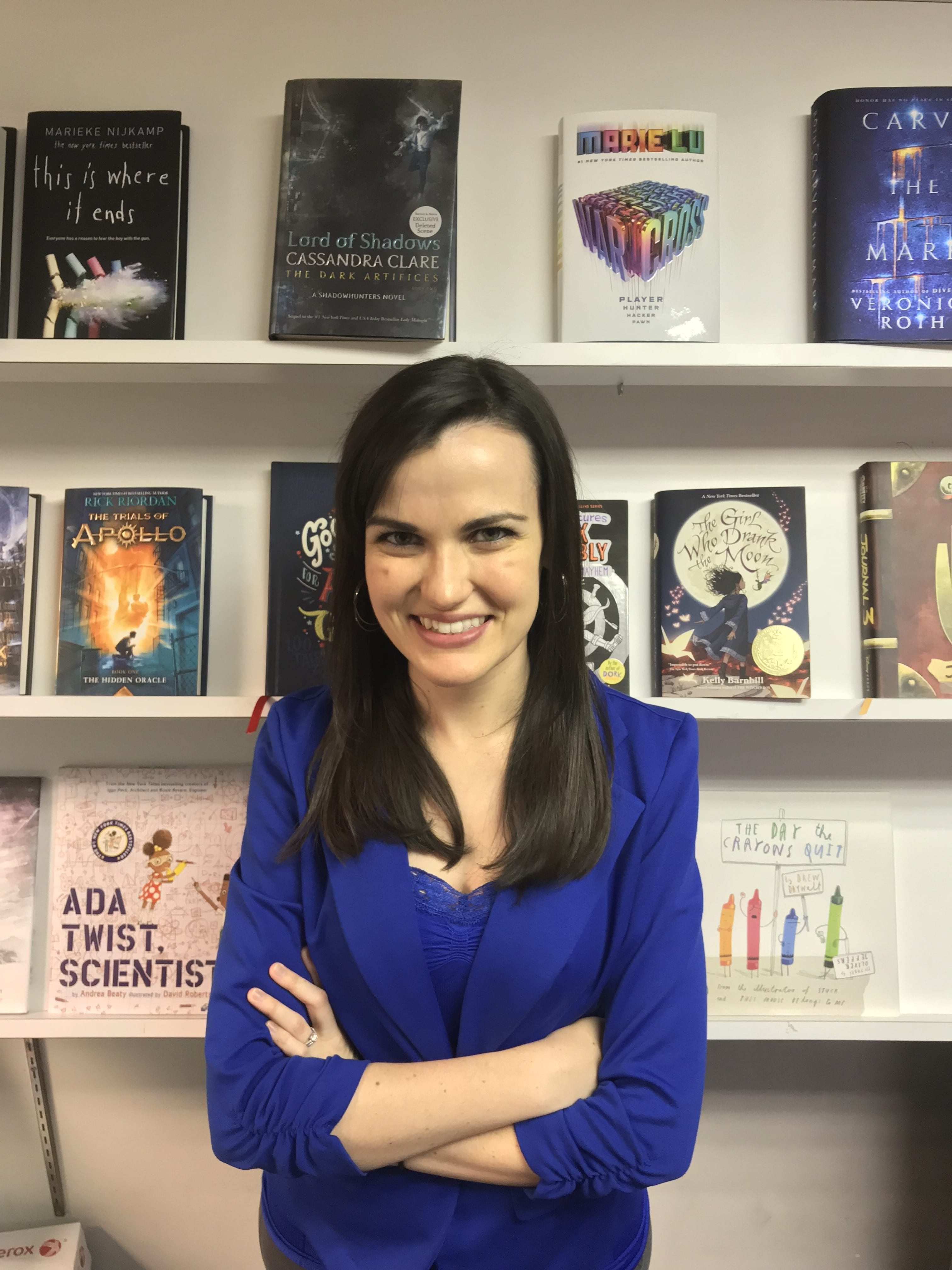
Clare (McGlade) Perret ’12 is a Senior Production Editor at Simon & Schuster Children’s Books and also works as a freelance copy editor and proofreader. She has worked on books by Jason Reynolds, Sharon Draper, Evan Turk, Frances O’Roark Dowell, Phyllis Reynolds Naylor, Hilary McKay, and Susan Cooper, among many others. Originally from Southern California, she moved to New York City in 2010 to attend Pace University’s MS in Publishing program. She is also an avid tap dancer and swing dancer. She lives with her husband in Queens, New York.
What does your job at Simon and Schuster entail? What are some of your favorite parts or interesting aspects of your job?
My job at Simon & Schuster is in the managing editorial department, and it involves coordinating with the editorial, design, and production departments to turn raw art and manuscripts into final, polished books. I build production schedules to keep things moving and get everything to the printer on time; I hire and manage freelance copy editors and proofreaders to make sure the text is in good shape; I copyedit cover copy and shorter books myself; and I route materials through design, editorial, and production until everyone agrees that all is approved to print. My favorite parts of this process are getting to see the development of a book–from sketches and a word document to a final printed book–and offering edits or suggestions on those things to try to help make it the best book it can be.
Did you intern in the past and if so, how did it prepare you for your current position?
While I was an undergraduate, I was lucky enough to do a few work-experience weeks at several publishing houses during a summer in London, and then I did an internship during my time at Pace at HarperCollins Children’s Books. While there, I helped out in both the Managing Editorial department and the Editorial department, which gave me some insights into how each department works, and also how they work together. Seeing that interaction and learning about the role each department plays helped me to figure out where my own strengths and interests were. This gave me a direction when I began applying for full-time positions, and also gave me a solid grounding of experience to draw from for both interviews and the work itself once I was hired.
What was your topic for your thesis paper? Do you have any advice or tips for students currently writing their paper?
My topic was “Children’s E-books and Apps in 2011: How HarperCollins Children’s Books is Publishing in the New Digital Era.” Obviously this is a bit outdated now, but at the time, publishing houses were frantically navigating the shift in the way readers wanted their content to be available, as the popularity of ebooks and apps exploded. It was an interesting time to be entering the industry, so there were lots of articles on the topic, and many publishers were experimenting with ways to engage and create content using these new platforms. That also meant that there were lots of thoughts and opinions from people working in publishing, and my in-person and emailed interviews with publishing professionals really helped me direct my thesis writing to the real and practical aspects, rather than just what was being said in articles. I would recommend that approach to students currently writing their paper — talk to people as much as you can, and let them talk to you about their thoughts and experiences with your topic. They may offer an angle or an idea that hadn’t occurred to you in your own research, which you could delve into to take your paper in a new and even more interesting direction.
What do you think are the biggest challenges in the publishing industry?
It’s a competitive industry, and is often a labor of love. You have to be ready to fight for your ideas and the projects you believe in, while also being ready to figure out which of those battles are things to let go. Making books is a very collaborative process, so learning and adapting to different working styles is a necessity, which can sometimes be challenging. And it’s a very creative industry along with having very practical elements and limitations — learning to navigate those is a challenge but also extremely rewarding when the right combination of the two makes a successful book.
Where do you see yourself in the future, 5-10 years into your career?
I hope to continue climbing up in the managing editorial side of children’s books, while also continuing to grow my own freelance business on the side. Becoming a supervisor or a teacher is also a goal, to help the next generation of the publishing industry succeed and make more great books.
What were some of the highlights of your graduate experience? (Please mention your internships, teachers, courses, or just fond classroom memories here.)
My time at Pace was great — I learned so much from my professors that I was able to take into my internship and then my entry-level job at S&S. Prof. Bathgate, Prof. Soares, Prof. Denning, Prof. Rosati, and Prof. Diehn all gave me lots of tools to apply in my career. I also made some of my closest friends while in the publishing program, and together we have gotten through not only graduate school, but also so many of the things life throws at you afterward.

